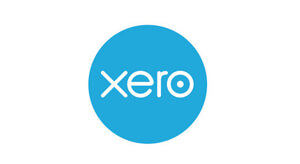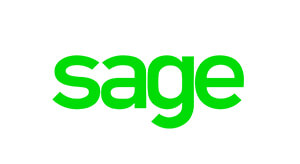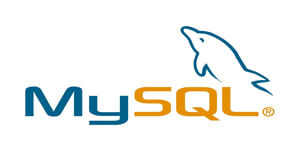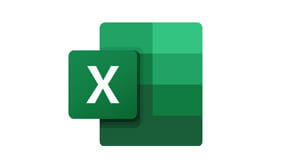Running a business in Glasgow comes with many financial responsibilities, and one of the most common areas of confusion is the difference between an invoice and a receipt. Whether you’re a sole trader, freelancer, or managing a growing company, understanding these documents and the need for a bookkeeper in Glasgow is essential for keeping accurate records and staying compliant with HMRC.
At Momentum Bookkeeping, we specialise in bookkeeping services in Glasgow, helping businesses manage invoicing, receipts, VAT returns, and small business bookkeeping. In this guide, we explain the difference between invoices and receipts, why both matter, and how professional bookkeeping can save you time, money, and stress.

What Is an Invoice?
An invoice is a formal request for payment issued by a business. It includes key details such as:
- Invoice number
- Date issued
- Buyer and seller details
- Itemised goods/services
- Payment terms and due date
Purpose of an invoice:
- Acts as an official request for payment
- Helps businesses track outstanding money (accounts receivable)
- Supports VAT compliance and tax submissions
For many small businesses in Glasgow, accurate invoicing is the backbone of good bookkeeping and invoicing practices. At Momentum Bookkeeping, we record and track every invoice carefully, keeping your cash flow management healthy.
What Is a Receipt?
A receipt is issued once payment has been made. Unlike an invoice, which requests payment, a receipt serves as proof of payment.
It usually includes:
- Date of payment
- Amount paid
- Payment method (cash, card, transfer)
- Business and customer details
- Reference to the invoice number
Purpose of a receipt:
- Confirms that a transaction has been completed
- Provides evidence for tax and audit purposes
- Helps businesses and clients track expenses and income
In small business bookkeeping, receipts are essential for expense claims, VAT submissions, and reconciling accounts. At Momentum Bookkeeping, we use cloud-based systems to digitise receipts, saving our clients hours of admin time.
Invoice vs Receipt: Key Differences
When They Are Issued
An invoice is issued before payment is made. It acts as a formal request for money owed, outlining what goods or services were provided and when payment is due. In contrast, a receipt is issued after payment has been received. It serves as confirmation that the transaction is complete.
Purpose of Each Document
An invoice requests payment and clearly states the terms for when and how to pay, while a receipt confirms that the payment has been successfully processed. Together, they provide both sides of the financial exchange, one requests funds, the other verifies them.
Role in Bookkeeping
In bookkeeping, invoices are recorded as accounts receivable, meaning money is expected to come in. They help businesses keep track of outstanding balances and manage cash flow. Receipts, however, are recorded once payment has been received. They are crucial for reconciling accounts, claiming expenses, and ensuring that financial records match actual bank transactions.
Importance for Tax and Compliance
Invoices are essential for VAT submissions and demonstrating income due during audits, while receipts are vital as proof of payment for HMRC, particularly when claiming business expenses. Both are required to keep records complete and compliant.

Why Both Invoices and Receipts Are Important
For any business using professional bookkeeping services Glasgow, invoices and receipts together provide:
- Cash flow clarity: Invoices track what’s owed; receipts track what’s paid.
- HMRC compliance: Both documents are vital during VAT submissions and audits.
- Professionalism: Clients and suppliers expect clear invoicing and receipts.
- Expense management: Receipts support tax-deductible expenses and business claims.
As your local Glasgow bookkeeper, Momentum Bookkeeping properly manages both invoices and receipts, keeping your business finances accurate, compliant, and stress-free.
How Momentum Bookkeeping in Glasgow Can Help
When you hire a bookkeeper in Glasgow, you want someone who not only manages your day-to-day records but also understands local business needs. At Momentum Bookkeeping, our services include:
- Invoice generation & tracking: Clear, professional invoices with VAT details, due dates, and branded templates.
- Receipt management: Digital receipts stored securely for easy access during tax season.
- Small business bookkeeping Glasgow: Affordable packages designed for sole traders, freelancers, and SMEs.
- VAT returns & HMRC compliance: Ensuring your records are always audit-ready.
- Bank reconciliation & reporting: Keeping your accounts accurate and up to date.
Our team of expert Glasgow bookkeepers uses cloud-based tools like Xero and QuickBooks to streamline your processes, giving you more time to focus on running your business.
Why Choose a Local Glasgow Bookkeeper?
Choosing bookkeeping services in Glasgow has unique advantages:
- Local expertise: We understand Scottish tax regulations and business needs.
- Personal support: Easy in-person meetings or online consultations.
- Tailored packages: Transparent pricing, flexible services for small businesses.
Momentum Bookkeeping is proud to support local businesses with personalised, affordable bookkeeping solutions.

Conclusion
Understanding the difference between an invoice and receipt is essential for accurate bookkeeping and financial clarity. Invoices request payment, while receipts confirm it, and together, they form the foundation of reliable business records.
At Momentum Bookkeeping, our team of professional Glasgow bookkeepers manages your invoices and receipts expertly, keeping your business compliant, organised, and ready to grow.
Ready to simplify your bookkeeping? Contact Momentum Bookkeeping today.

Momentum Bookkeeping Ltd
Mentieth House, 29 Park Circus, Glasgow, G3 6AP
Call. 0141 375 1240
Email. info@mvbooks.co.uk




